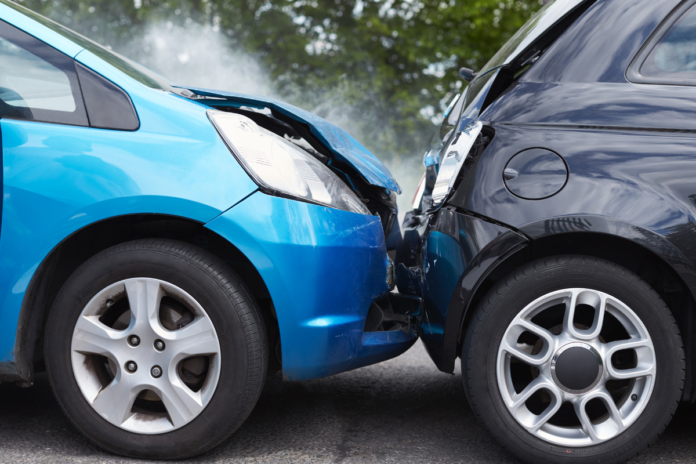The moments after a car accident can be seriously stressful, especially when figuring out the whole insurance situation. After an accident whose insurance to call: Your insurance, the other driver’s, or both? Take a deep breath – we’ve got you covered. This guide will walk you through the post-accident process step-by-step, including whose insurance to contact and when. And if things get complicated, we’ll even touch on when it might be time to bring in the big guns (aka legal representation). Let’s dive in!
Stop and Assess the Situation
When you’re involved in a car accident, your first move should be to hit the brakes—literally and figuratively. Take a deep breath and resist the urge to flee the scene. It’s crucial to stay put and evaluate what just happened. Check yourself and your passengers for injuries. If anyone’s hurt, call 911 immediately. Even if it seems minor, it’s better to be safe than sorry.
Next, turn on your hazard lights and, if possible, move your vehicle to a safe spot. This helps prevent further accidents and keeps you out of harm’s way. Remember, your safety comes first. Once you’re secure, it’s time to gather your thoughts and prepare for the next steps.
Call the Police to File an Accident Report
After a car crash, it’s crucial to call the police right away. They’ll create an official accident report, which is gold when dealing with insurance companies. This document provides an unbiased account of what happened, including details you might miss in the heat of the moment.
Don’t let the other driver talk you out of calling 911, even for minor fender-benders. The report can protect you from potential fraud and help streamline your insurance claim. Plus, in some states, it’s required by law to report accidents involving injuries or significant property damage. Remember, a police report is your best friend when navigating the often choppy waters of post-accident insurance claims.
Exchange Information With Other Drivers
After ensuring everyone’s safety, swapping details with the other drivers involved is crucial. Grab your phone or a pen and paper, and jot down the following:
- Name, address, and phone number
- Driver’s license number
- Insurance company and policy number
- Vehicle make, model, and license plate
Remember to provide your information, too! Take photos of their documents if possible—it’s quicker and more accurate. While you’re at it, snap some pics of the accident scene and vehicle damage. These details will be invaluable when filing your insurance claim or if legal issues arise later. Remember to stay calm and polite throughout this process.
Contact Your Insurance Provider
After ensuring everyone’s safety and exchanging information, it’s time to call your insurance company. Don’t wait! Prompt reporting can streamline the claims process and protect your interests. Your insurer will guide you through the next steps, including documentation and potential repairs. Suppose you’re wondering after an accident whose insurance to call. In that case, your insurer can help clarify whether you should filelaim with your own provider or the other driver’s, depending on the situation and who’s at fault.
Keep in mind that your policy likely requires timely accident reporting. Even if you think you’re not at fault, informing your insurer keeps you covered and prevents potential issues. Be honest and thorough when describing the incident – your insurance agent is there to help, not judge.
Consider Speaking With a Car Accident Lawyer
After a car accident, you might wonder if you need legal help. While minor fender-benders can often be handled directly with insurance companies, professional guidance may benefit more complex situations. A car accident lawyer can help you navigate tricky insurance claims, especially when dealing with serious injuries or disputed faults. They can also ensure you don’t miss out on the compensation you’re entitled to.
If you’re feeling overwhelmed or unsure about your rights, it’s worth at least consulting with an attorney. Many offer free initial consultations, so you can get expert advice without committing. Remember, having a knowledgeable advocate in your corner can make a world of difference in the outcome of your case.
Conclusion
So there you have it – the ins and outs of navigating insurance after an accident. Remember, start with the at-fault driver’s insurance, but don’t hesitate to loop in your own if needed. The key is staying calm and gathering all the necessary information at the scene. And hey, if things get complicated or you’re dealing with serious injuries, it might be time to bring in the big guns. A good lawyer can be a real lifesaver when battling insurance companies and getting the compensation you deserve. Don’t be afraid to reach out for help if you need it. Stay safe out there!






